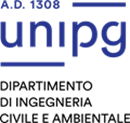Study-unit ANTHROPOLOGY
| Course name | Planet life design |
|---|---|
| Study-unit Code | A001932 |
| Curriculum | Comune a tutti i curricula |
| Lecturer | Massimiliano Minelli |
| Lecturers |
|
| Hours |
|
| CFU | 6 |
| Course Regulation | Coorte 2022 |
| Supplied | 2022/23 |
| Learning activities | Caratterizzante |
| Area | Scienze umane, sociali, psicologiche ed economiche |
| Sector | M-DEA/01 |
| Type of study-unit | Obbligatorio (Required) |
| Type of learning activities | Attività formativa monodisciplinare |
| Language of instruction | Italian. |
| Contents | The course aims to provide students with the anthropological skills necessary to operate with an interdisciplinary approach in the ideation process and in participatory design and planning. The anthropological perspective and ethnographic practice allow students to follow the design activity as the conception, creation and realization of artifacts sensitive to social contexts and cultural exchange. Reflexive, dialogical and critical approaches are experimented, in order to support the participatory social process of "thinking together" and "giving shape” in concrete situations, through a workshop activity. |
| Reference texts | Ingold T. (2019). Making. Antropologia, archeologia, arte e architettura, Raffaello Cortina, Milano. Dei F. - Meloni P. (2015). Antropologia della cultura materiale, Carocci, Roma. During the course, more bibliographic information will be provided. |
| Educational objectives | The course aims to provide students with the anthropological skills necessary to operate with an interdisciplinary approach in the ideation process and in participatory design and planning. The main knowledge (Dublin Descriptor 1) acquired will be: • knowledge of the theoretical foundations of the anthropology of practices and the cultural analysis of social production of objects; • knowledge of the theoretical foundations, methodological tools and techniques for the interpretation of socio-cultural processes; • knowledge of the theoretical foundations of the relationship between material and immaterial dimensions of cultural heritage; • knowledge of the tools, techniques and methods for the ethnographic description and anthropological interpretation of the creative processes implemented in the encounter between atelier activities and "collaborative ethnography". The main skills acquired (ability to apply the knowledge acquired, Dublin Descriptor 2, and to adopt the appropriate approach with autonomy of judgment, Dublin Descriptor 3) will be: • ability to choose, use and combine methods, techniques and tools of socio-cultural analysis concerning the different phases of the design activity; • ability to choose, use and combine methods, techniques and tools of ideation, socio-cultural analysis and communication in assessments of sustainability, impact and social use of ideated artifacts; • ability to formulate the research problem and to adopt effective and innovative methodological choices to follow the participatory process of ideation and realization; • ability to interpret and use the results of ethnographic research in order to encourage discussion and sustain social exchange in the creative process. |
| Prerequisites | None. |
| Teaching methods | The course is divided into theoretical, group discussion and practical lessons. |
| Other information | None. |
| Learning verification modality | The exam consists of an individual oral test. The verification of the educational objectives of the course (test) includes an oral test, which will be carried out on the dates set in the exam timetable of the CdS. The oral exam consists of an interview, of about 30 minutes, carried out starting from the graphic drawings produced during the application exercises and aimed at assess: • the level of knowledge of the theoretical contents of the course (Dublin descriptor 1); • the level of competence in presenting their knowledge (Dublin descriptor 2); • autonomy of judgment (Dublin descriptor 3). The oral test also aims to verify the student's language skills in answering the Commission’s questions, to sustain a dialectical relationship during the interview and to demonstrate logical-deductive and summary abilities in the exhibition of one's thought (Dublin 4 descriptor). The grade will be express by the Commission in thirtieths. |
| Extended program | The course aims to provide students with the anthropological skills necessary to operate with an interdisciplinary approach in the ideation process and in participatory design and planning. The anthropological perspective and ethnographic practice allow students to follow the design activity as the conception, creation and realization of artifacts sensitive to social contexts and cultural exchange. Reflexive, dialogical and critical approaches are experimented, in order to support the participatory social process of "thinking together" and "giving shape” in concrete situations, through a workshop activity. The methodological process will be outlined, considering the fieldwork and design activities as “thinking through making”. Students will be asked to participate in group discussion and practical lessons in order to test the main steps of ethnographic investigation: defining a problem, making a design studio, entering the fieldwork, participating/observing, interviewing. These activities will be the base of a laboratory of "collaborative ethnography” and participative design, by exploring (with participant observation and biographical interviews) some design objects, commodities, and domestic spaces. In this way, the students will experience a biographical approach to the “social life of things”, making a cartography oh the social performances of commodities. |


